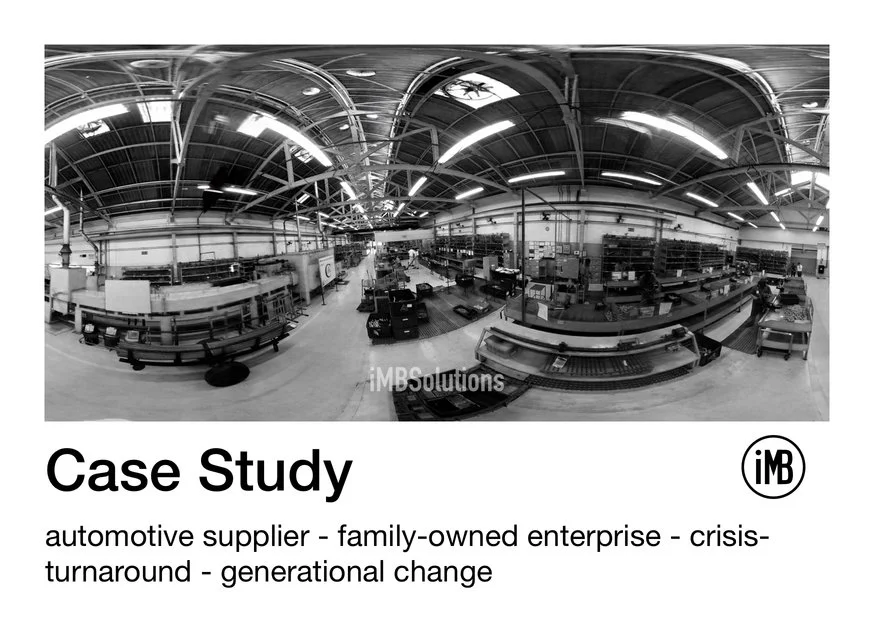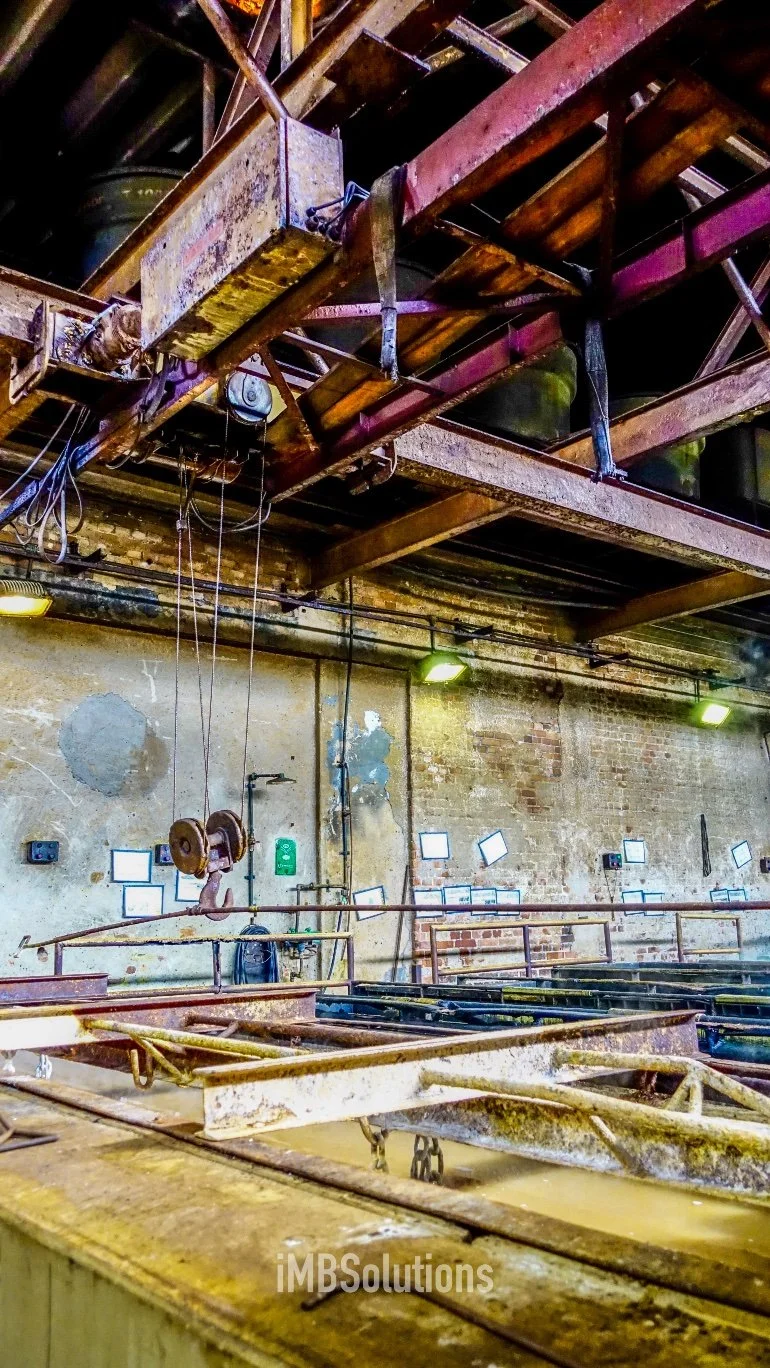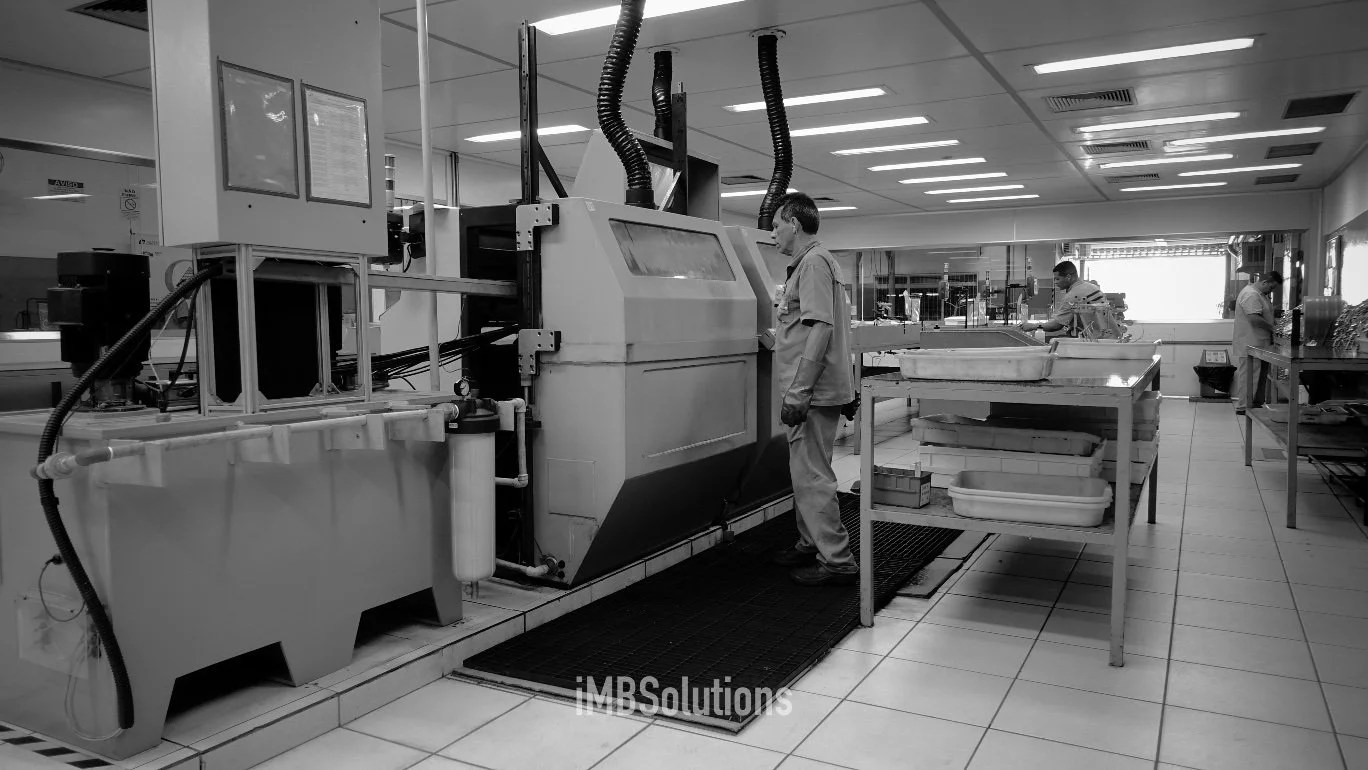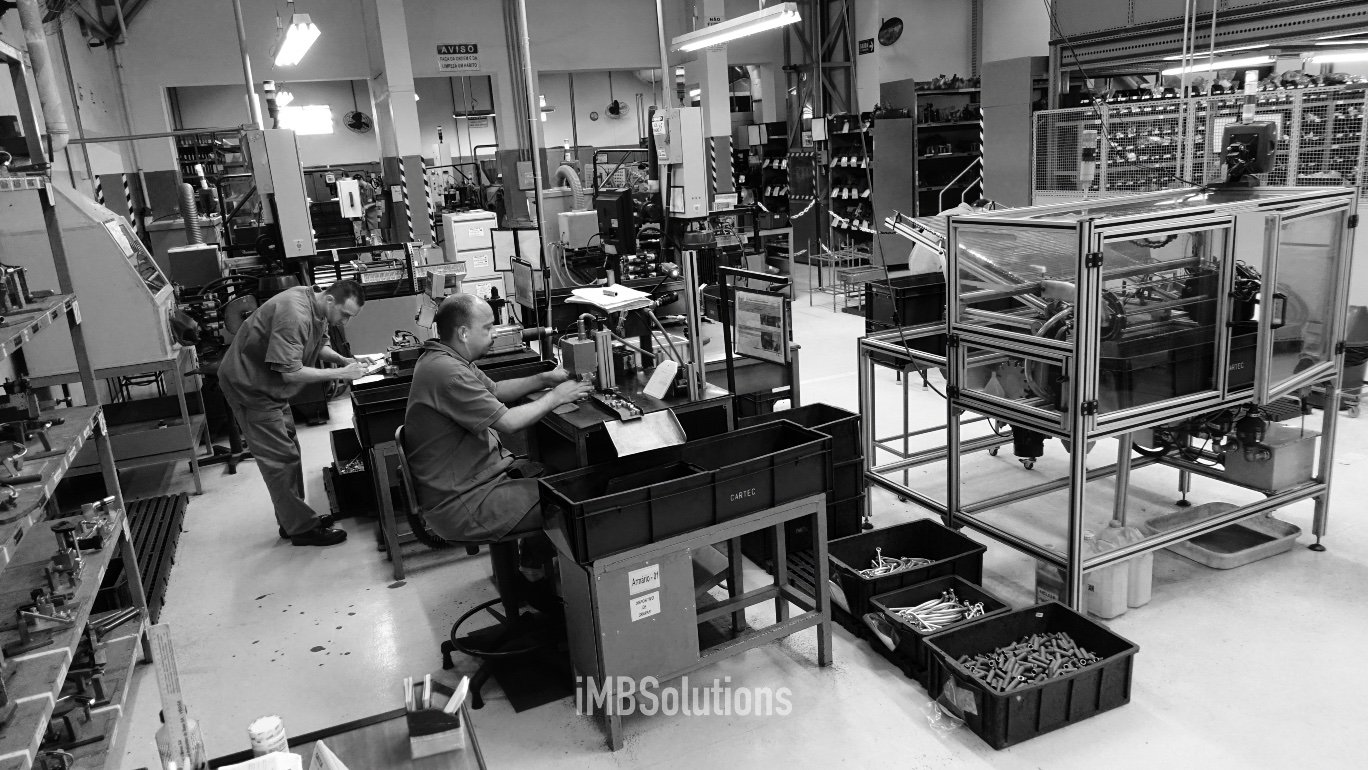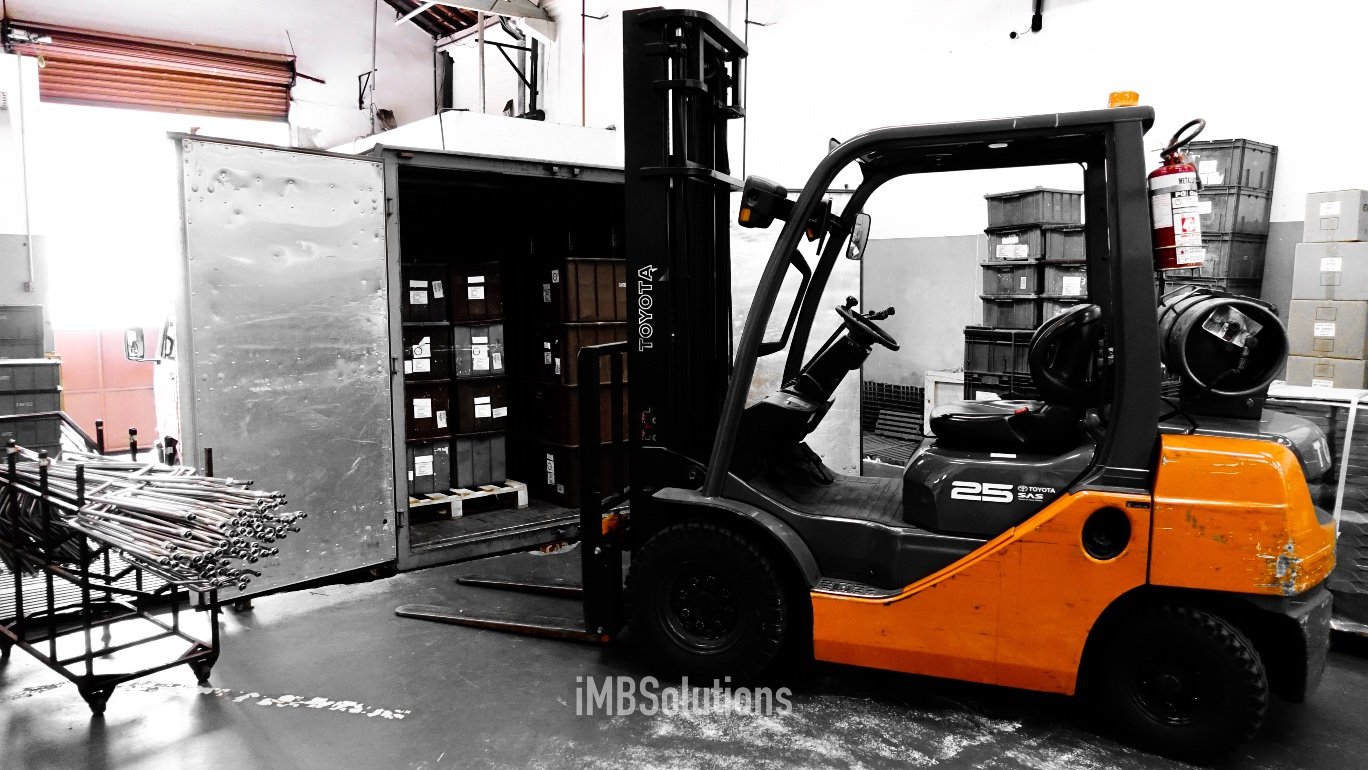What is the risk of driving a car without a fuel gauge?
Into the crisis with open eyes - difficult generation change.
Preface
Situations that threaten the existence of a company and accelerate the need for a turnaround have a lead time of about one to three years until they fully erupt. Outside of Brazil it will probably take much longer until this moment is reached. At iMB we differentiate between a potential, latent and manifested threat. In the pre-crisis period, the signals become visible very quickly and convert into a manifested threat. Interestingly, almost all of these companies do not really acknowledge the situation and blame only and all external factors for the plight.
We cannot claim that the negation of the manifested crisis has its roots in the management capacity, quality and education of managers. On the contrary. In almost all cases, the management team balances itself almost evolutionarily. We know of no case in which only one leader can be held solely responsible for the failure or the negation of the manifested crisis. But what we keep seeing in all these cases is the complete lack of a system and methods to recognize and manage the symptoms of a crisis. At the same time, it was observed that the managers concerned consciously overlook the first signals and concentrate all efforts on the hope of future business. The phenomenon can also be described as a "symptom of selective perception“.
from project to project, we change our teams constantly (image downloaded from Squarespace stock)
We, as consultants and interim managers, also have to be prepared against this danger in order not to consciously search for signals to justify and take for granted a very specific solution. iMB therefore tends to opt never to work on projects with the same teams, if teams are required.
Initial situation.
A few years ago, during the boom times in Brazil, our client was confronted with the first signals of a potential crisis. The company, a supplier of high- and low-pressure components for diesel engines in the commercial vehicle market in Brazil, ignored the emerging signals of a crisis and quickly plunged into a self-accelerating negative dynamic. Despite the boom in Brazil, they were heading for a crash. Sales declined constantly, margins also collapsed and a negative cash flow began to install itself. Subsequent liquidity problems, quality problems and supply bottlenecks followed.
In the second escalation stage, the problems in our client's business environment became increasingly visible: suppliers, banks, customers, tax authorities, business associations and trade unions. The crisis definitely reached our later client.
360-degree photography of one of the three production units of our client, São Paulo, Brazil (image captured by iMB project team, Nikon KeyMission360)
Crisis acknowledged - too late?
At that moment, iMB was called in to carry out a thorough analysis of the problem chains, develop proposals and implement them in coordination with the management. Our client is a supplier for the commercial vehicle market and supplies components for diesel engines. The company was founded by a German immigrant in São Paulo more than 50 years ago and is now in its second generation led by the three descendants of the founder.
2nd generation of German immigrants to Brazil (image captured by iMB project manager, Hamburg, Germany)
The son of the founder, who was in charge of the daily management, had a profound technical engineering education and had to promise his father on his deathbed that the company would be maintained under all circumstances and that the system would continue as introduced by the founder.
Structural entrepreneurial conservatism has been cemented.
When the crisis broke out in Brazil, our client's sales eroded by almost 80%, to the same extent as the main customers Mercedes Benz, MAN and Volvo in the Brazilian commercial vehicle market.
The company carried out its own reorganization and called on the children of the current owners to join the company. As a result, three well-trained young managers joined the company and took over the functions of controlling, sales and IT. At the same time, the company contracted a consultant specializing in succession planning. The project was abandoned after one year because there was no real progress.
Ad-hoc launch.
In this environment iMB started working with our 360-degree analysis tool, which has been proven for years. However, the situation worsened almost every day: the tense situation forced our client to exceed the existing credit lines of the house banks, to negotiate the invoices of the suppliers daily new, up to the evaluation of so-called defaults.
Death spiral.
Of course, it did not take long and our client's suppliers began to stop deliveries and demand payment in advance. The death spiral is beginning to accelerate. The interruption of deliveries to our clients causes an interruption of production, delivery times to the customers can be kept less and less, customer payments are delayed and the employees fall into agony. Our client also opts to negotiate with the tax authorities on a monthly tax deferral, which naturally attracts the attention of the authorities.
The fully integrated digital systems in Brazil make the situation immediately visible to the house banks and in turn provoke measures against our clients. The crisis is fully installed. And no normal measure can save the situation.
fully installed crises - very little room for maneuvers (image download from Squarespace photography stock, Feb. 2024)
Three business areas.
Our client operates in three business areas. The first business area produces pipelines for high and low pressure applications. The production is partly absorbed by the downstream productions. However, a large part of this production is sold on the free market in Brazil. The market functions like a typical commodity market.
The analysis showed that the unused capacity of this business area has fluctuated between 56% and 68% in the last 12 months - a clear effect of the crisis. However, it also emerged that the installed technical capacity (production line) per month was 40% below the installed direct production capacity (labour force).
This relationship had existed for many years and was independent of the crisis. The analysis also showed that an employee can produce 14.6 tons of pipes per month, but true productivity has only reached 5-8 tons per month for years. The business sector was also impacted to an above- average extent by a cost allocation procedure in the other areas and lost its natural ability to be a cash generator.
iMB developed its own business model for the sector, adapted cost accounting and commercial rules, for the external as well as the internal inter-company market. One of the central commercial adjustments was the construction of a 10-day warehouse, via which the standard goods could be purchased without having to negotiate delivery times with each customer individually. The main problem in the initial phase was the provision of the financial means to build up the stock. Our client was in an extremely tense financial situation.
thermo-chemical process of pipe production, São Paulo, Brazil (image captured by iMB project manager)
In the second business area, our clients manufacture high- pressure components for diesel engines. While the pipe production is of an archaic character, work is carried out in the high-pressure area in the clean room. The installations differed fundamentally from the first division. Initial analyses revealed that in this area the control of productivity and all available key figures was even more reduced than in the pipe manufacturing business area. The situation became even more threatening when it was discovered that there was no real production management. In fact, there was no control and the figures collected in production control were intransparent.
We opted for the "escape to the front". Our client had installed a very rudimentary ERP system. These basic data and structure were good. Together with the IT sector, we developed an extension of the system with the aim of using high-pressure production as a kind of laboratory for a newly established production control and management controlling system.
With the completion of the extended ERP system it became clear that the unused capacity in the high-pressure component manufacturing sector was 71%. Here too, the rate of unused capacity is within the scope of our client's customers. However, it was striking that the desolate productivity could already be observed during the boom and was around 37%. The crisis had only exacerbated the effect.
clean room production cell, São Paulo, Brazil (image captured by iMB project manager)
In the third business area, low-pressure component production, the figures were at exactly the same level as in the high-pressure area.
In the last decades, our client was regarded as a very competent tool developer by the customers. In order to increase productivity, we used the same extended ERP system. Inefficiency was 67% and had remained virtually unchanged for many years. Here, too, we were able to determine the abstinence of planning and leadership. There were no budgets for the development of new tools. Traditionally, there were always assumptions that these costs would be compensated by the production orders. It was clear that against the background of the market our client could not charge the development costs separately to the customer. However, since no key figures and budgets were available, these expenses were not included in the pricing.
production cell of low pressure pipe systems, São Paulo, Brazil (image captured by iMB project manager)
What do customers say?
In order to get a feeling for the positioning of our client, iMB sought talks with the customers Cummins, Bosch, Continental, Magneti Marelli, Mercedes Benz, MAN and Volvo. iMB received detailed qualitative indications, which we crossed with the information of our client. The data showed that our client has not really been able to reduce internal structural costs for decades, regardless of the current crisis in Brazil. Our client had failed to investigate which competencies need to be expanded and which can be acquired on the market.
our client delivers components to all truck manufactures operating in Brazil (image download from Squarespace stock, Feb. 2024)
In recent years, the rules of the game in our client's relevant market have changed drastically. Previously, the business model of the market was based on the physical technical installations and an expressively large warehouse. Today, the market functions on the basis of highly specific technical competencies, integrated supply chain management and the possibility of operating production areas as independent corporate units.
This observation becomes all the more evident when considering our client's high-pressure components market. The company is the only national producer, but never achieved a significant market position compared to imports.
loading area for expedition, São Paulo, Brazil (image captured by iMB project manager)
Check-up.
In the case of our client there was a broad understanding that the installed processes must continue to develop. The decision must be supported and brought about by the client's shareholders. The shareholders did not really feel sure in which direction the company should be heading. It was good to see that the decision-making processes were very slow and that they always opted for extremely short-term actions. The results were unproductive discussions, a great return to the past and trust in the past, as well as a certain panic-like behavior towards the future. At all meetings it was clear that there was no consensus as to which future success factors should determine the future of the company.
board meeting room, São Paulo, Brazil (image captured by iMB project manager)
With the aim of documenting processes and competencies, iMB evaluates the following factors:
Process design: Are the processes sufficiently documented?
Employees: The process owners have enough knowledge and ability to live the process?
Responsibility: How are the responsibilities distributed in the process chain?
Infrastructure: Is the IT system coordinated with the processes?
KPI: Are there sufficient KPIs to evaluate the processes?
Leadership: Do shareholders and managers support leadership based on processes?
Corporate culture: Is there a kind of group work to solve problems?
Experience: Do the managers have sufficient experience to adapt processes?
Management: Does our client have the tools for efficient project management?
Without going into the individual results at this point, our client's results were very negative.
the situation was more than critical - the company has survived by private capital injection, private bank guarantees, extremely low interest rates and protection against competition by devaluation of Brazilian currency - far away from sustainable business (image captured by iMB founder, Brazil)
The pillars of the reorganization plan.
The success of a reorganization project is based on four pillars: the concept, a management team, monitoring of project phases and financial resources. Without a doubt, the basis is a realistic concept that can do justice to all four pillars. Fundamentally, the process depends on the client's will and the necessary financial resources.
It was clear that our client's dramatic financial situation could not be overcome without further developing or completely redesigning the structures and processes. Without a doubt it was clear that the current structure, in connection with the loss-making processes, caused the company to fall into the situation: abstinence from a controlling system, incorrectly dimensioned productionlines, complaints about the current market situation, lacking ability to face up to the problems and make corresponding decisions.
Main problem.
The complete abstinence of a planning and controlling system manifests itself in one point: quality. Quality does not only mean the technical specifications, delivery reliability and compliance with the contractual conditions encloses the topic of quality. Our client had no tools to plan delivery dates in a dynamic form, there were no tools to control and plan the installed capacities. This does not mean that our client has not made an effort in the past to address these problems. Static tools were developed which collected data at the beginning and end of a period. What happened in the meantime was not clear to anyone. This ambiguity only ever became apparent at one point in time: delivery reliability always collapsed pus, although production capacity was available. iMB develops a catalogue of requirements for an ERP system with full integration.
What is the risk of driving a car without a fuel gauge?
Keeping the prosperity of our client in mind, without taking into account the individual personal aspects of the three shareholders, transparency and optimized administration are the main objectives. Unfortunately, our client had not done his homework during the boom. It became clear that our client did not invest in a controlling system during the boom times in order to increase transparency. Now, in the recession years of Brazil, there is no time to install such a system - above all, there is a lack of capital and skilled personnel. Based on the development of the ERP system as part of the iMB project, further adjustments were made "to increase transparency“. It also became clear that an internal division and creation of profit centers is necessary.
This climate also gave rise to the idea of finally introducing a new generation in the company. In the second project step, iMB is now in the process of implementing the developed proposals and actively accompanying and accelerating the generation change.
